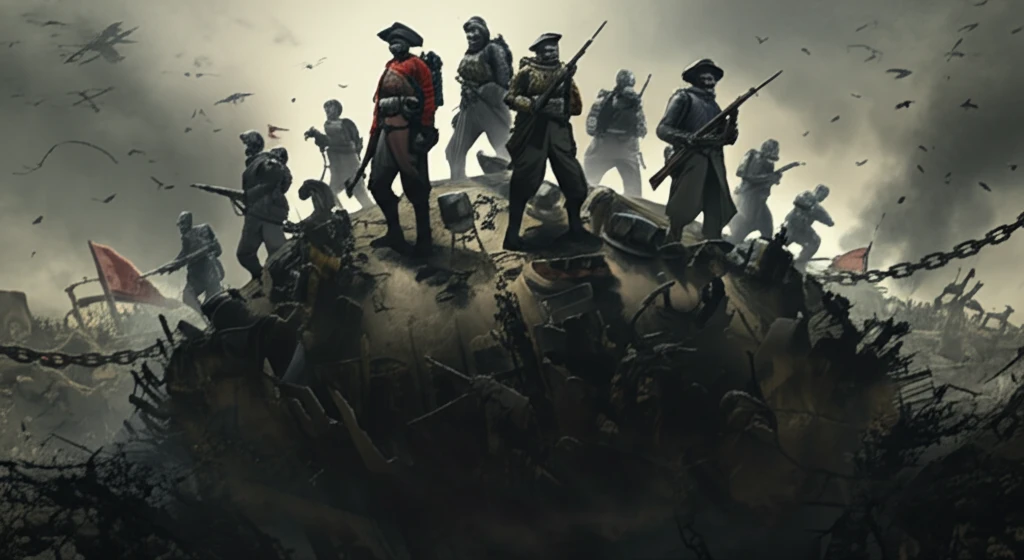
Beyond the Battlefield: Uncovering the Complex Legacy of Black Soldiers in Colonial Empires
"Exploring the multifaceted roles, challenges, and cultural impact of African-descended soldiers across centuries and continents."
The story of colonial empires is often told through the lens of European dominance, but the reality is far more complex. A crucial, yet frequently marginalized, aspect of this history is the role of soldiers of African descent. These men, often forced into service or lured by the promise of opportunity, served in the armies of European powers across vast stretches of time and geography. From the 18th century to the early 20th century, their presence shaped not only military campaigns but also the social, cultural, and political landscapes of both the colonizers and the colonized.
Consider the Easter 1816 rebellion in Barbados, also known as 'Bussa's Rebellion.' During a decisive battle at Bayley's plantation, around 400 enslaved rebels clashed with 150 men from the 1st West India Regiment, a unit comprised largely of West African personnel commanded by white officers. This regiment, like many others, was formed by the British in the late 1790s, sourcing manpower from purchased slaves or individuals 'liberated' from foreign slave ships after the abolition of the British slave trade. When some of the rebels called out for the black soldiers to join them, they were met with gunfire, a stark illustration of the complex allegiances and contradictions inherent in their position.
Despite their crucial role in suppressing the rebellion—James Stephen noted that they were 'the troops put in advance, and by whose fire the insurgents were dispersed'—the West India Regiment faced unfavorable reports questioning their conduct. These reports, likely originating from white slaveholders, highlight the precarious position of black soldiers, even when performing their 'duty' in the eyes of the empire. This special issue delves into the myriad historical themes surrounding the creation and deployment of these armed units, exploring their impact on both the Americas and Africa during a pivotal period of imperial expansion.
Navigating Contradictions: The Complex World of Black Soldiers

The arming of African-descended men occurred amidst a complex web of imperial expansion, colonization, slavery, and anti-colonial resistance. This created a unique set of circumstances that profoundly shaped the experiences of these soldiers. They were often caught between conflicting loyalties, serving empires that simultaneously oppressed their people while offering them a path to potential advancement.
- Soldierly Identity: Examining how black soldiers perceived themselves and their role within the imperial structure, and the challenges they faced in forging their own identities in the face of racial prejudice and conflicting loyalties.
- Military Symbolism: Unpacking the cultural meanings associated with armed men of African descent, both as symbols of imperial power and as potential threats to white supremacy.
- Military Intermediaries: Investigating how black soldiers functioned as cultural and social bridges between colonizers and colonized populations.
A Lasting Legacy
The story of black soldiers in colonial empires is a testament to their resilience, adaptability, and agency in the face of immense challenges. While imperial power largely remained in the hands of white colonizers, the contributions and experiences of these soldiers reveal a more nuanced and complex history—one where black hands sometimes wielded power, challenged authority, and shaped the course of empires in unexpected ways. By understanding their story, we gain a deeper appreciation for the multifaceted legacy of colonialism and the enduring impact of race and power on global history.
